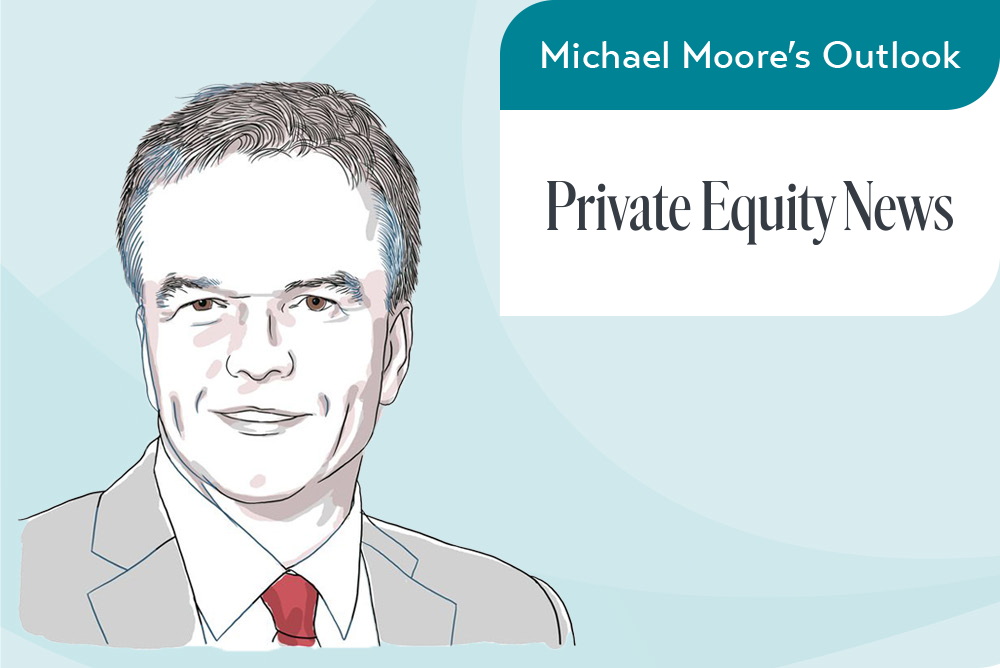Michael Moore’s Outlook on the ‘comprehension gap’ between the industry and politicians

Mind the gap. It’s the warning we hear at every London Underground station to prevent us doing ourselves an injury (or worse) as we board and exit the tube. After a while we are inured to the message and it can be a shock when occasionally the gap catches us out.
Less obviously painful, but serious nonetheless, is the “comprehension gap” between business and politics which often creates misunderstandings, at best limiting opportunities for business growth, at worst creating real damage. For years this is something private equity and venture capital had not needed to worry about – the industry travelled on its growth trajectory, largely out of sight of policymakers’ or media scrutiny.
Now the reality is that private capital’s economic contribution makes it a mainstream part of the economy. So the scrutiny no longer comes in cycles or blips – it is persistent and more challenging. Which makes the comprehension gap something we can no longer afford.
Perhaps the best example of this comes from one side of the UK political debate, as we gear up for a general election within the next 18 to 24 months. The opposition Labour party has a sizeable, and for now persistent, lead in the opinion polls. Under Sir Keir Starmer it has moved away from the “Corbynite” agenda which most would have seen at the time (just 3 years ago) as anti-business, and certainly very unattractive to the private capital industry.
Actively courted
But the Labour leader and his shadow chancellor, Rachel Reeves, are not simply distancing themselves from the party’s recent past – business is now being actively courted by the leading politicians in the shadow cabinet. This was illustrated most clearly by their business conference in Canary Wharf in early December, where the entire leadership team was on parade as Labour hosted 250-300 business leaders and organisations, and shared their emerging policy programme.
Former Goldman Sachs economist and independent member of the House of Lords, Jim O’Neill, unveiled the party’s start-up review, which he had chaired, and to which the BVCA had contributed data, case studies and technical insight. The proposals were well received and marked a symbolic step forward as well as a substantive policy contribution. So, for venture capital and growth equity, the comprehension gap felt pretty narrow, which is great.
There’s a “but”, unfortunately. Over the past year, we have had to spend a great deal of time engaging with Labour to shift their perceptions and descriptions of private equity, which were wide of the mark and a perfect illustration of the dangers of a comprehension gap – if you misunderstand an industry then you are hardly likely to look favourably on the “licence to operate” which underpins its activities and success. We are still providing the infill, but there is now something to build on, not least following a series of visits by leading politicians to businesses in their constituencies, which show first-hand how our industry works and the “public value” it creates.
More pressing
As we move further into 2023, there will be more of this activity across the political spectrum. But we know the conversation will change, too. The consequences of the economic downturn will become more apparent. And the challenges facing all businesses will become more pressing.
This will be an important moment to highlight the way in which the long-term, active ownership model of the industry looks after the businesses in which it is invested; the way in which private equity and venture capital invest through the cycle; the way in which responsible investing is sustained, not treated as an optional extra.
Or put another way, by highlighting the strengths of the industry at a time of economic stress, we can continue to close the comprehension gap’ in a positive way. This way we reduce the risk of misunderstandings which lead to the wrong policy choices and uncertainty over the direction of travel for the industry.
Michael Moore
Chief Executive, BVCA
This article was originally published on 16 January 2023 on the Private Equity News website here.